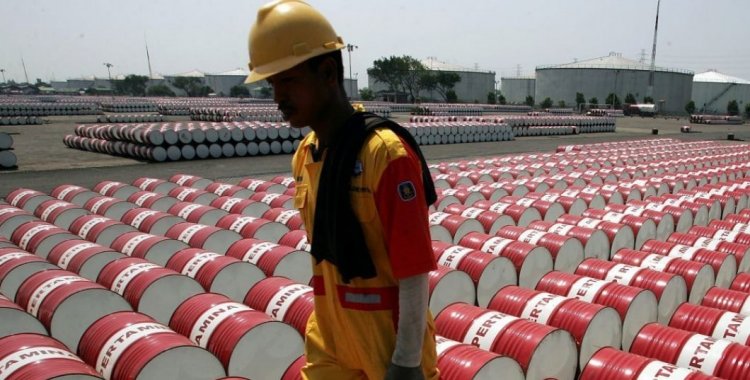On Thursday, the Organization of Petroleum Exporting Countries (OPEC) announced that it would propose this Friday to the 10 allied petroleum producers led by Russia an additional cut in production of 1.5 million barrels per day due to the impact of the coronavirus epidemic.
Industry ministers from the 23 OPEC+ countries (OPEC and 10 allied oil producers led by Russia) began this Friday's meeting at 9am as scheduled, but an hour and a half later the OPEC television service reported an indefinite delay due to face-to-face negotiations between Saudi Energy Minister Abdelaziz bin Salmán and his Russian counterpart, Alexandr Novak, who has returned from Russia to Vienna, where on Wednesday he held similar talks without reaching agreement.
Bin Salmán achieved unanimous support within OPEC on Thursday to defend a drastic cut in production.
However, the measure, designed to tackle the sharp contraction in demand for oil caused by the Covid-19 epidemic, was conditional on the participation of Russia and the other allies in the efforts.
Moscow remains against turning off the taps now, after the successive cuts in production it has agreed within OPEC+ since late 2016.
Russia, unlike Saudi Arabia, is satisfied with the current level of prices, and advocates extending the current supply cuts of 2.1 million barrels per day by the end of 2020 compared to October 2018 production.
Oil prices reflect investors' high nervousness about the discrepancies between producers in the negative impact that the spread of the coronavirus is having on the economy and on demand.
Brent oil was falling by almost 6 per cent, to around 47 dollars on the London futures market due to the contraction in demand in the face of the spread of the coronavirus.
The price of a barrel of North Sea oil for delivery in May fell to 47.1 dollars, down 5.78 percent from Thursday's close, when it finished at 49.99 dollars (down 2.23 percent from Wednesday).
In December, this group of 23 states known as OPEC+ established a cut of 1.7 million barrels per day for the first quarter of this year, later expanded to the first half of this year.
In addition to this cut, Saudi Arabia voluntarily decided to withdraw 400,000 barrels per day in order to sustain the price of oil.
But the value of the barrel already fell in January due to the epidemic of the coronavirus, which is slowing down the world economy and consequently the demand for oil.
On Thursday, OPEC ministers agreed to cut back in an exceptionally short space of time to respond to the contraction in demand, especially from China, the world's largest oil importer.
The decision is in line with the recommendation of an OPEC technical committee, which proposed reducing production by between 1.2 and 1.5 million barrels per day, according to various sources which asked not to be identified.
The meetings in Vienna of the producers are entirely marked by the negative impact of the spread of the coronavirus on the demand for oil, as well as by the fear of contagion of the disease.
Following instructions from the health authorities in Vienna, the OPEC+ conference takes place with a minimum number of delegates, who must undergo temperature control before they can access the meeting, while the press has been vetoed from entering the organisation's headquarters.
OPEC member countries are Angola, Algeria, Saudi Arabia, United Arab Emirates, Ecuador, Gabon, Equatorial Guinea, Iraq, Iran, Kuwait, Libya, Nigeria and Venezuela.







